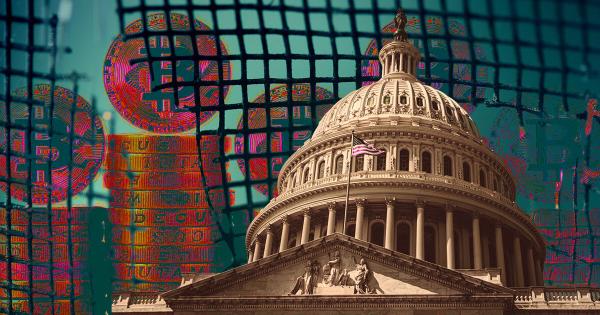Yesterday, a group of democratic co-sponsors led by Senator Warren introduced a bill titled the Digital Asset Sanctions Compliance Enhancement Act. The bill presents certain precautions to properly prevent Russia from using crypto to evade economic sanctions.
In addition to the fact that crypto can’t single-handedly rescue Russia and that most countries are already applying crypto sanctions, the introduced precautions apply restrictions on persons who build, operate, and use cryptocurrency networks even if they have no knowledge or intent to help anyone evade sanctions. Everyone who publishes open-source software or facilitates communication among network participants would fall under that definition and face sanctions themselves.
What would happen if the bill passed?
The bill calls for sanctions on:
“Anyone who significantly and materially assisted, sponsored, or provided financial, material, or technological support for, or goods or services to or in support of any [sanctioned] person.”
This vague definition is very prone to be used in an overinclusive manner. So let’s briefly go over the first actors that come to mind.
All exchange platforms
From the above sentence, exchange platforms are direct collocutors of “goods or services.” Even though non-compliant overseas crypto exchanges remain the most significant threat against Anti Money Laundering and Counter Financing of Terrorism, this act doesn’t target them only. As they are already operating illegally, additional regulations do very little to change their operations.
Moreover, the US President can already create secondary sanctions on exchanges when necessary. Therefore, this act will do nothing more than jeopardize all exchange platforms’ operations without offering solid merit for measuring the crime.
All key actors
In addition to the above statement, the bill also allows:
“The Secretary of Treasury to implement a full and indiscriminate ban on exchanges or non-custodial transaction facilitators doing business with anyone or any cryptocurrency address known to be, or could reasonably be known to be, affiliated with persons in Russia.”
This statement, together with the “persons providing material or technical support” definition from the above statement might include literally everyone who is involved in the crypto industry.
An uncountable number of people contributed to the creation of software, which is used to either conduct business or send transactions to sanctioned individuals by third parties. All developers who created the code and all nodes, validators, miners, and all other similar roles who help the system work would be sanctioned if this bill passes.
Innocent Russians
Based on these statements, everyone who processes transactions after the sanctioned activities would be guilty too, since their transactions help miners create more blocks and thereby consolidate the approval of the sanctioned transaction.
This also includes millions of Russian citizens, who have a higher chance of being related to the sanctioned transactions defined in the bill. These Russians may be against the war and have no other alternative other than crypto to protect what’s left of their personal finances.
Commenting on the possible range of the bill, the Founder of the Ukrainian crypto exchange, the Ukrainian government Michael Chobanian said that these Russians are the real opposition to Putin, and the last thing they need is more sanctions on themselves. He stated:
“Many civilians justifiably fear the seizure of retail deposits and want to protect their capital. Purchasing digital assets is an effective means by which ordinary Russian citizens can demonstrate their opposition to Putin’s regime by moving their savings out of the financial system of the Russian ruble.”
The post Here’s how the new sanctions bill could hurt the crypto industry appeared first on CryptoSlate.






